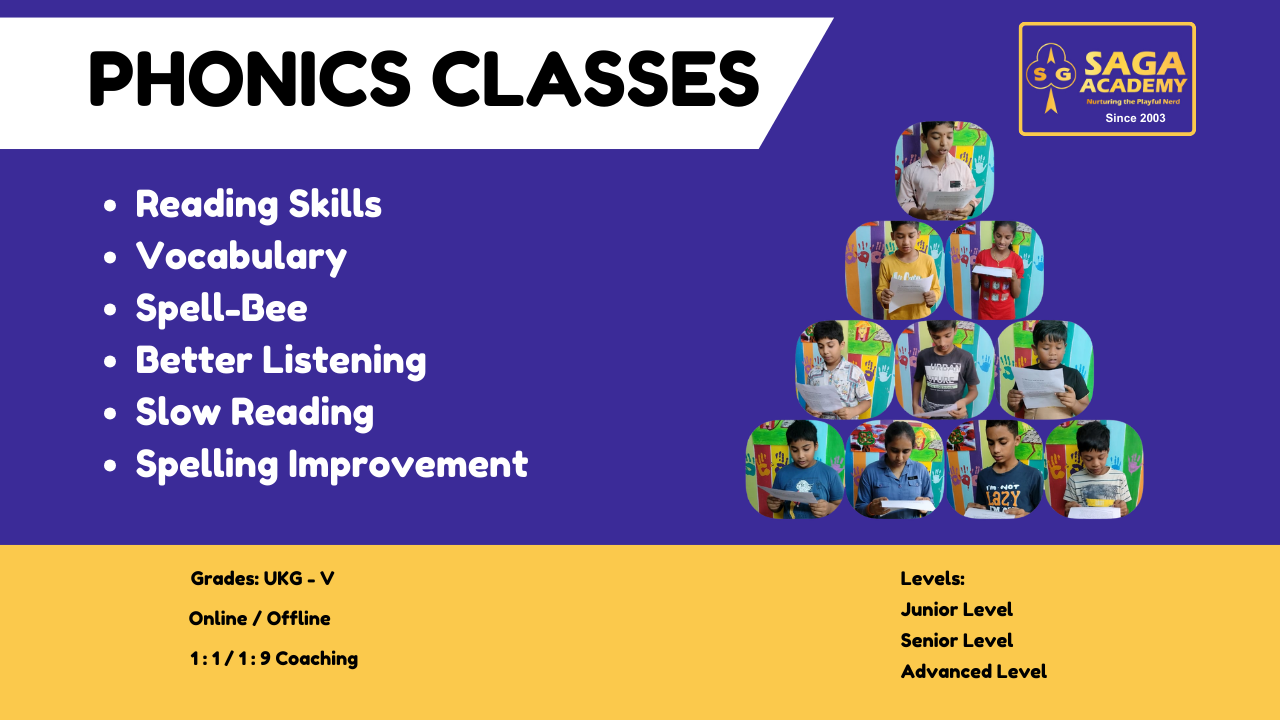
Children will recognize the distinct sounds, letters, and words in language.
Phonics empowers your child to become a confident and independent reader.
Strengthens storytelling skills, enabling kids to describe objects, events, and experiences effectively.
Encourages a lifelong love for reading.
Helps in decoding and pronouncing even complex English words with ease.
Enhances reading fluency and speaking proficiency.
Phonics is a method of teaching reading by connecting letters with their sounds. It helps children decode words, improve pronunciation, and develop strong reading skills.
Children can start learning phonics as early as 4 to 5 years old, beginning with letter recognition and sounds. More structured phonics lessons are typically introduced around ages 4 to 6.
Phonics teaches children how to break down words into individual sounds (phonemes), blend them together, and read fluently. This makes it easier to recognize new words and improves reading confidence.
Phonics includes:
* Letter-sound recognition
* Blending (combining sounds to form words)
* Segmenting (breaking words into individual sounds)
* Sight words and spelling rules
Whole-word reading relies on memorization, while phonics teaches children to decode words by understanding letter sounds. Phonics helps with reading unfamiliar words, making it a more effective approach.
Yes! Phonics improves spelling by helping children recognize sound patterns and syllables, making it easier to spell words correctly.
Absolutely! Phonics enhances pronunciation, fluency, and articulation, leading to clearer and more confident speech.
If a child finds phonics challenging, they may need more practice with letter sounds and blending. Interactive activities, games, and repetition can make learning easier and more enjoyable.
Yes! A structured phonics approach is highly beneficial for children with dyslexia, helping them decode words systematically and improve reading skills.
The duration varies, but with consistent practice, most children develop strong phonics skills within a year or two. Mastery depends on their age, learning pace, and exposure to reading.
* Read with your child daily
* Encourage sounding out words instead of guessing
* Use flashcards and phonics-based storybooks
* Getting children trained under expert guidance is always the sure short way of success with phonics.